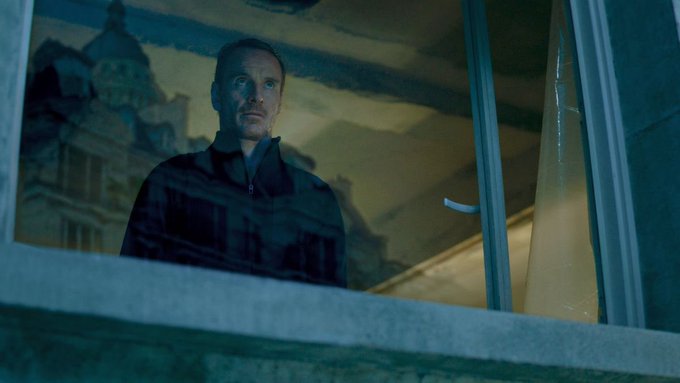In my eyes, there’s no contemporary filmmaker that matches up to David Fincher. His newest film, “The Killer,” starring Michael Fassbender as the titular killer, was produced by Netflix and released onto their platform on Nov. 10, and to say I was excited would be an understatement. I’ve written academic papers (yes, plural. I was a joy in high school.) on the way his films are constructed, and now I get to plague The Fordham Ram with my thoughts.
Fincher is the rare case when pure quality and commercial appeal collide. Every technical aspect of his movies, from blocking to performances to production design, are perfect, and he’ll make sure of it. Still, I’ve never been nervous that recommending one of his films to a friend would result in an “I don’t get it” text. This is a very ideal quality for me, a chronic people-pleaser.
“The Killer” is a return to form for Fincher. It’s an American thriller in the purest sense, which is what he does best. The film follows a hitman who, after making a mistake on a job, returns home to find his partner has been attacked, causing him to spend the film tracking down and getting revenge on all those responsible.
The film mainly works as an exercise in both critique and irony. This is Fincher’s first film where we’re forced to follow the killer alone. Of course we watched Rosamund Pike pull one over on a frustrated Ben Affleck in “Gone Girl,” but Amy Dunne had some pushback; she didn’t swiftly get away without a care in the world. Even Mark Zuckerberg’s schemes in “The Social Network” were interspersed with his depositions on how he screwed over his friend, his enemies and, ultimately, the entire evolution of the Internet. However, the killer from “The Killer” doesn’t get caught; he doesn’t even get hunted by someone who’s not within his ring of hitmen. Fincher forces us to think about why that may be, and how he may have contributed to it.
Fincher is not famous for his feature films alone. His career began with his music videos, which notably include Madonna’s “Vogue,” and, even more widely seen in the ’90s (yes, than a Madonna video, believe it or not), his commercials. Fincher has directed around 50 commercials throughout the decades for brands such as Gap, Nike, Apple and Pepsi. The amount of culturally relevant products we’ve been sold by this one man, from Levi 501s to the iPhone 3G, is almost scary.
Fincher’s historical relationship to product placement could make one question “The Killer.” The film harps on corporations which make the killer’s lethal actions possible. We see him fuel up pre-kill on a McDonald’s breakfast sandwich (whilst internally listing off statistics of French fast-food consumption), hide out in a WeWork office (Fincher, as topical as ever) and pick up a fob copier from an Amazon locker. At one point, the killer even thanks the New York Times’ Wordle for distracting an onlooker from his crime. The film makes it clear that while these corporations provide us with every product and distraction we need (and don’t need), they’re not only in our hands, they make everyone’s lives easier, and we’re too distracted in the cloud of capitalism to notice. The killer’s been able to roam free because no one has looked at him sideways, even once.
Fincher is, through and through, a man of ease. This isn’t necessarily for the worst, he’s brought us some great works on Netflix’s unlimited dime (not only this film, but his series “Mindhunter” and “House of Cards”). I’m not shocked a man of such great critical and cultural success still takes commercials to this day, and it’s not just because I think he has a special interest in Chanel.
Fincher’s “The Killer” critiques the very same monster he’s grown in his own laboratory. However, his self-awareness is baked into the film, and closely followed by a sly, sick sense of humor, which is my favorite part.
Fincher’s killer spends the first 10 minutes of the movie speaking to his audience about how his success is based on rules, such as “stick to the plan” and “forbid empathy.” In an easy jab at the protagonist, after watching him complete a strict stretching regimen and explain his orderly lifestyle, he turns on his “work playlist,” and it only includes The Smiths songs. I knew what was coming every time the killer took out his iPod Nano, but it still got me: someone so calculated and rigid listening to Morissey weep while he buys a trash can to dump a body in.
Another fun throughline of the film is the running joke in which every time the killer books a flight or checks into a hotel, his ID reads a different ’80s show protagonist’s name, and no one notices. The killer doesn’t need to hide, he’s openly mocking the distractedness and disregard around him.
The explanation for Fincher having both great widespread appeal and filmmaking mastery is obvious: he’s a master of commerciality, but he knows how to wind it into the beating heart of a film; It’s pure logic. He actually gives something to the audience in return for having to watch the Netflix introduction in a movie theater. In this age, no one’s perfect, but the man does provide often-perfect, mockingly funny films to atone.








































































































































































































